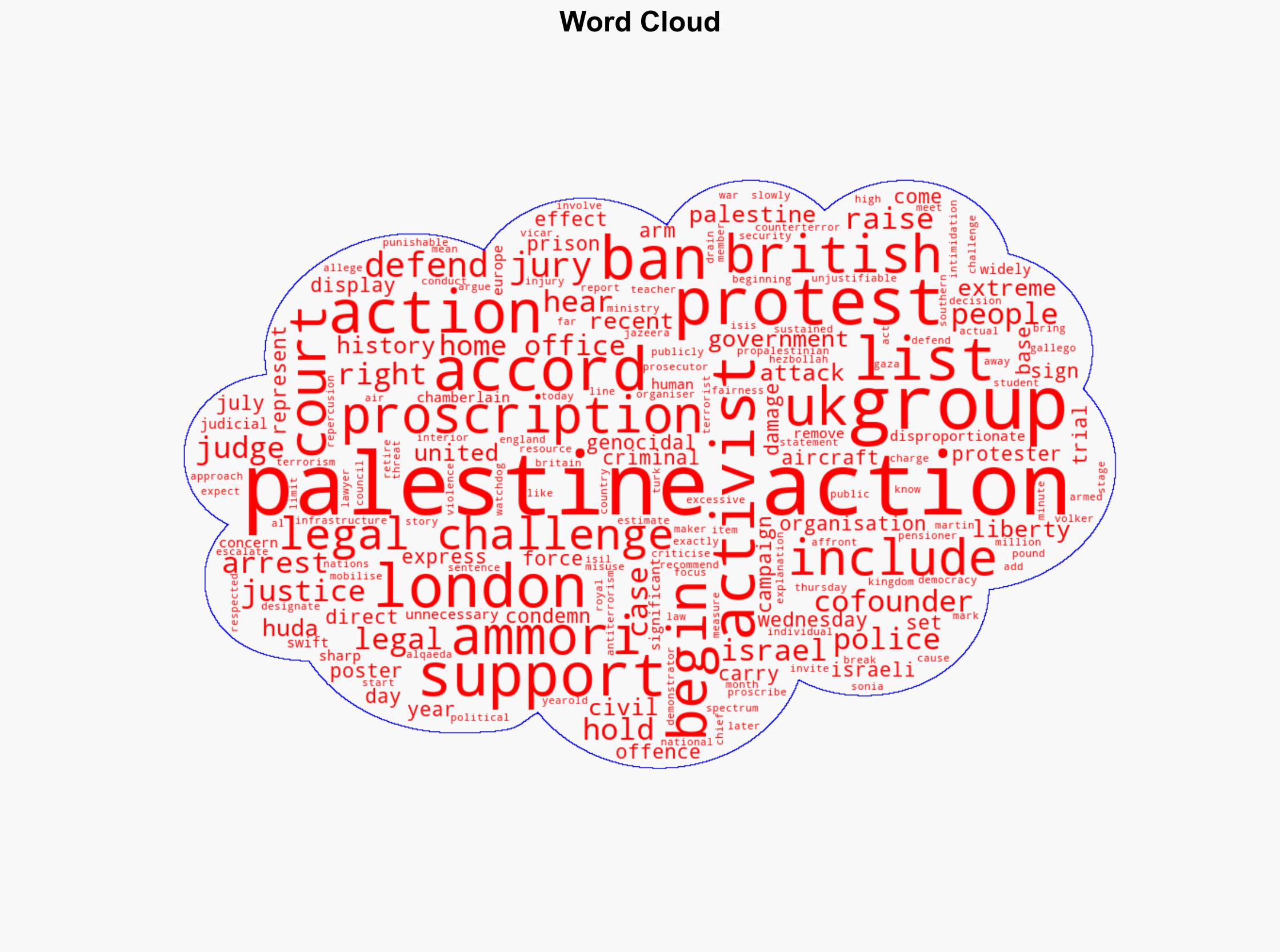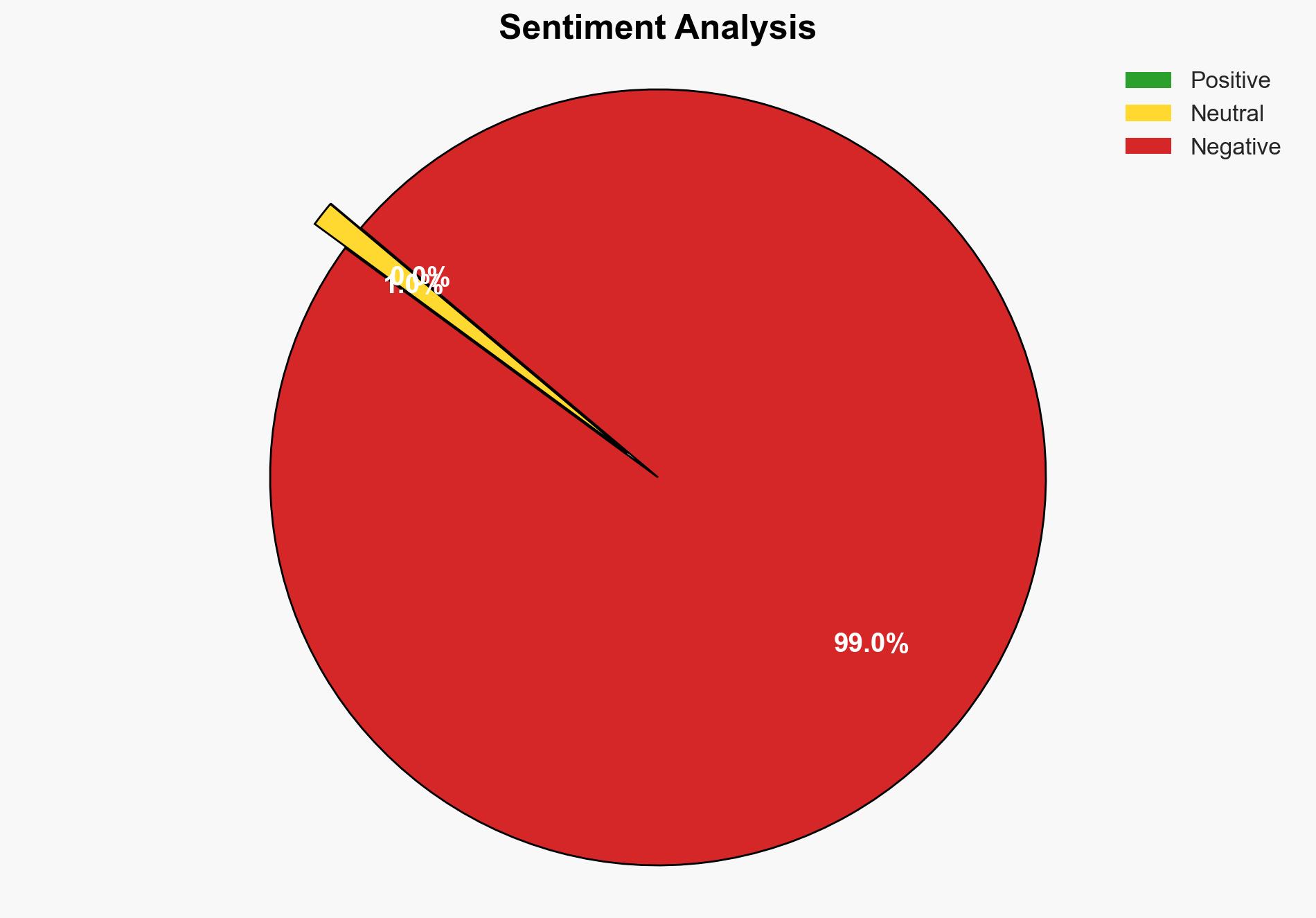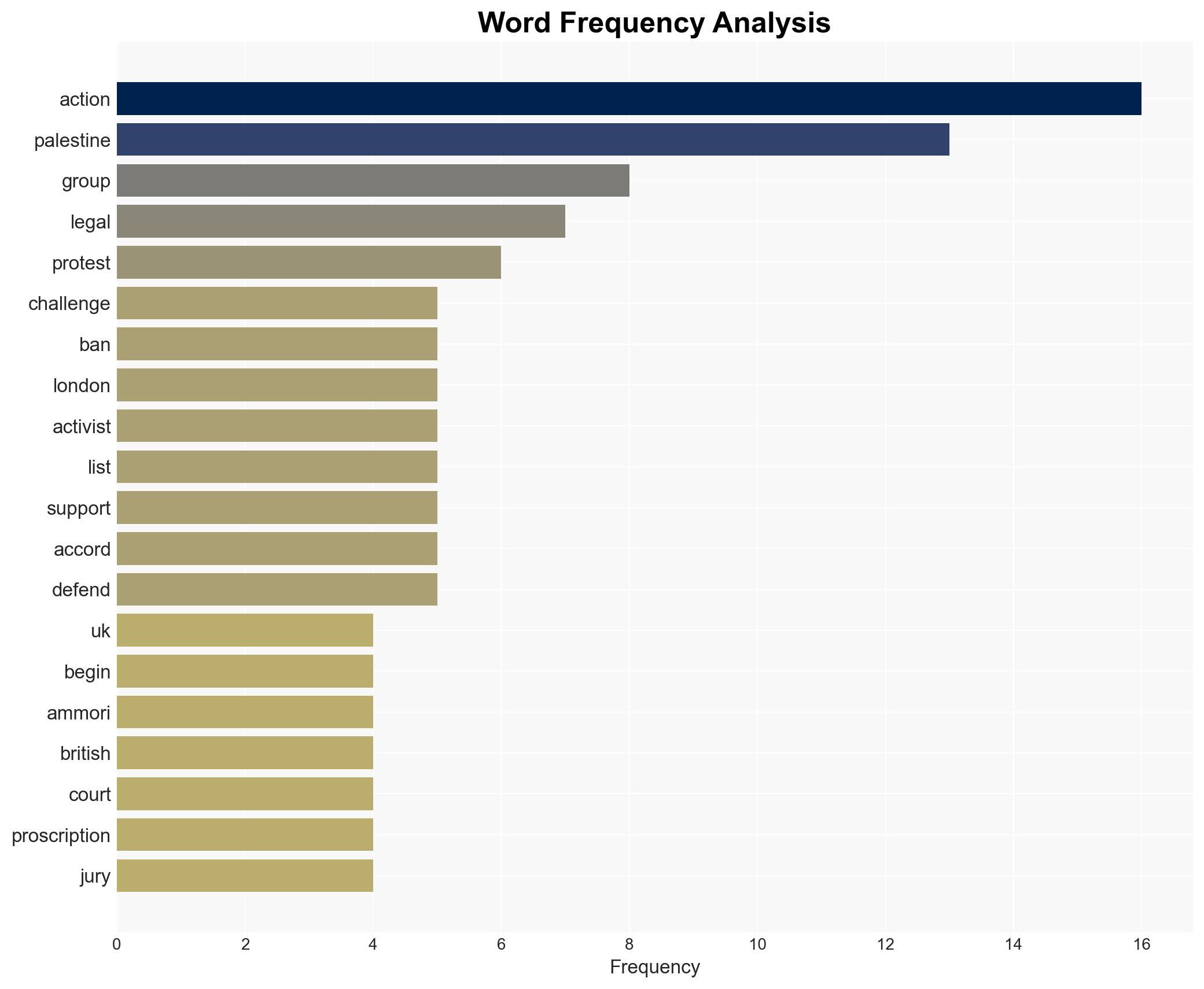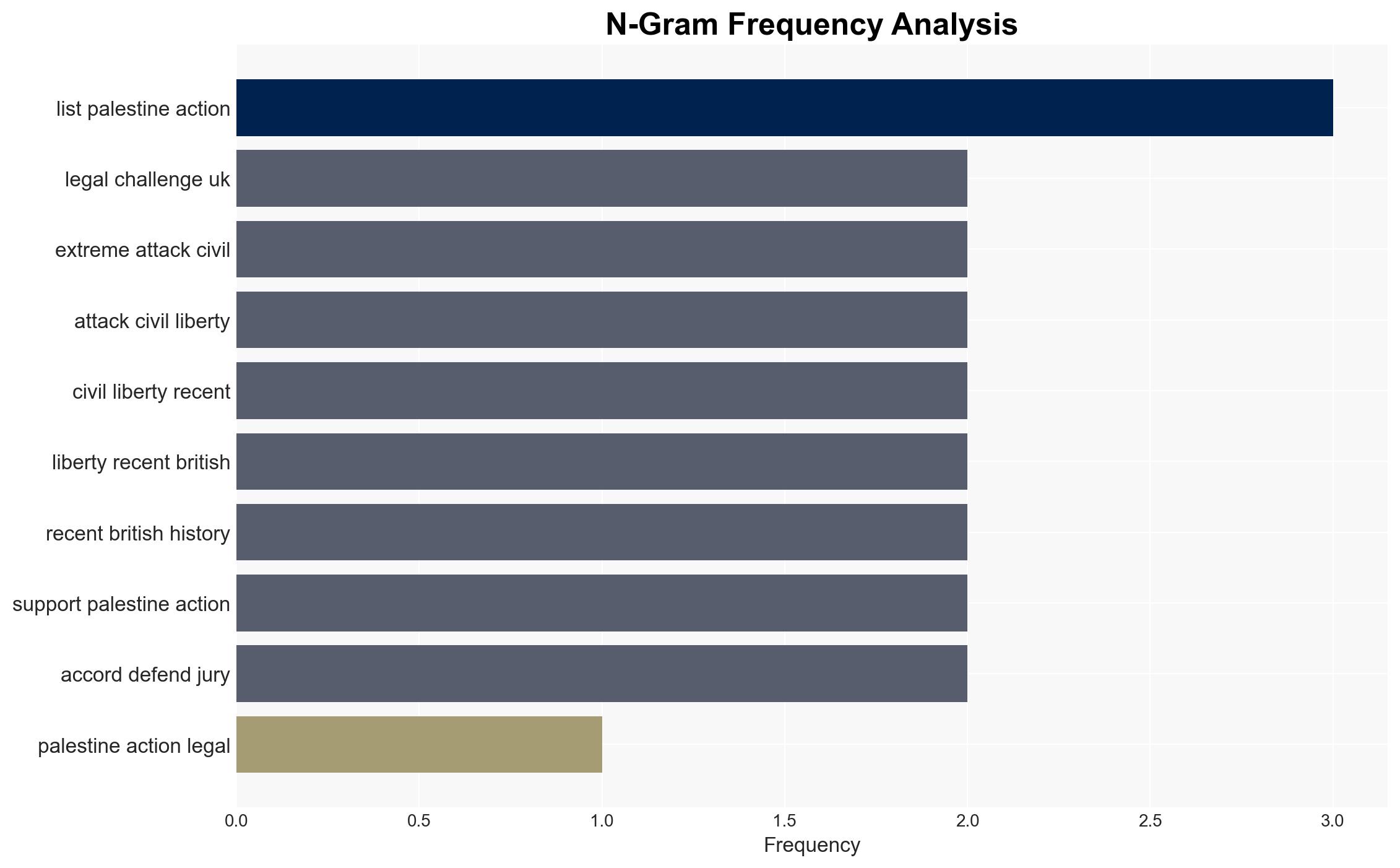Palestine Action Initiates Legal Challenge Against UK Government’s Ban on Activist Group
Published on: 2025-11-26
AI-powered OSINT brief from verified open sources. Automated NLP signal extraction with human verification. See our Methodology and Why WorldWideWatchers.
Intelligence Report:
1. BLUF (Bottom Line Up Front)
The legal challenge by Palestine Action against the UK government’s proscription is a significant test of civil liberties and anti-terrorism laws. The most supported hypothesis is that the UK government’s designation of Palestine Action as a terrorist organization is primarily a political maneuver to suppress pro-Palestinian activism rather than a response to a genuine national security threat. Confidence Level: Moderate. Recommended action includes monitoring the legal proceedings for potential impacts on civil liberties and international relations, particularly with Middle Eastern countries.
2. Competing Hypotheses
Hypothesis 1: The UK government’s proscription of Palestine Action is a strategic move to curb legitimate threats to national security posed by the group’s activities.
Hypothesis 2: The proscription is a politically motivated action aimed at suppressing pro-Palestinian activism and dissent, with limited basis in actual security threats.
Hypothesis 2 is more likely given the context of widespread criticism from human rights organizations and the potential political motivations linked to UK-Israel relations. The removal of Judge Martin Chamberlain and replacement with a judge with perceived conflicts of interest further supports this hypothesis.
3. Key Assumptions and Red Flags
Assumptions include the belief that the UK government acts primarily in response to security threats and that legal processes are unbiased. Red flags include the removal of a respected judge without explanation and the replacement with a judge having potential conflicts of interest. The timing of the proscription coinciding with heightened tensions in Gaza suggests possible political motivations.
4. Implications and Strategic Risks
The proscription could set a precedent for limiting civil liberties under the guise of national security, potentially leading to increased domestic unrest and international criticism. There is a risk of escalating tensions with pro-Palestinian groups and impacting the UK’s diplomatic relations with Middle Eastern countries. The situation could also trigger cyber or informational campaigns against the UK by sympathizers of Palestine Action.
5. Recommendations and Outlook
- Monitor the legal proceedings closely for developments that could impact civil liberties and international relations.
- Engage with human rights organizations to assess the broader implications of the proscription on civil liberties.
- Best-case scenario: The legal challenge leads to a review and potential reversal of the proscription, reinforcing civil liberties.
- Worst-case scenario: The proscription is upheld, leading to increased domestic unrest and international criticism.
- Most-likely scenario: The legal challenge results in some concessions but maintains the proscription, with ongoing tensions.
6. Key Individuals and Entities
Huda Ammori, co-founder of Palestine Action; Judge Martin Chamberlain; Dame Victoria Sharp; Trevor Chinn.
7. Thematic Tags
Structured Analytic Techniques Applied
- Cognitive Bias Stress Test: Expose and correct potential biases in assessments through red-teaming and structured challenge.
- Bayesian Scenario Modeling: Use probabilistic forecasting for conflict trajectories or escalation likelihood.
- Network Influence Mapping: Map relationships between state and non-state actors for impact estimation.
Explore more:
National Security Threats Briefs ·
Daily Summary ·
Support us





